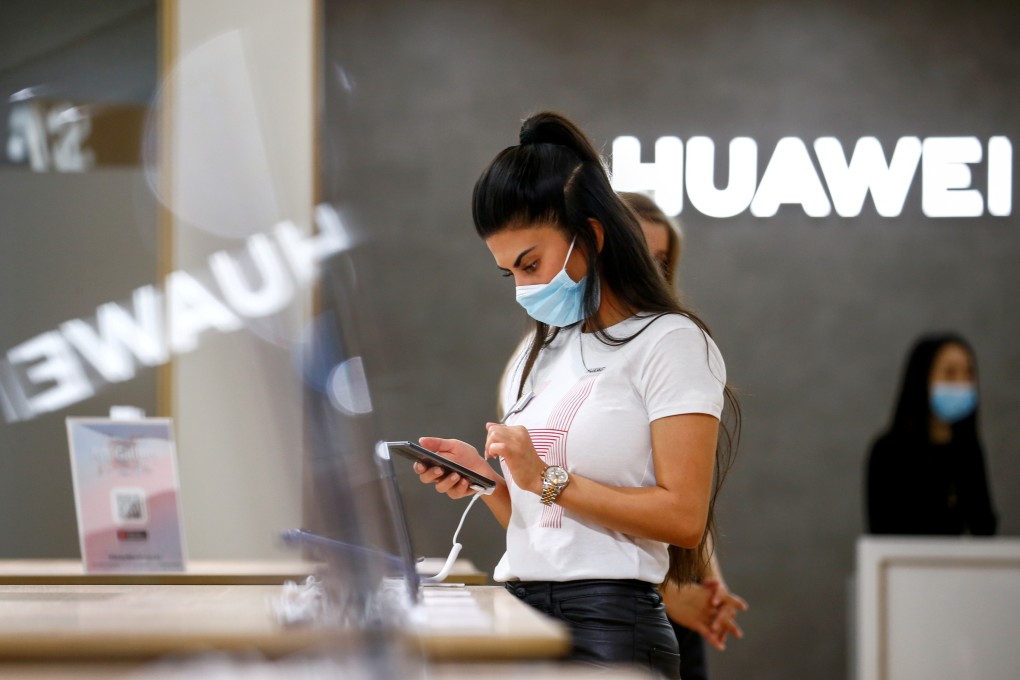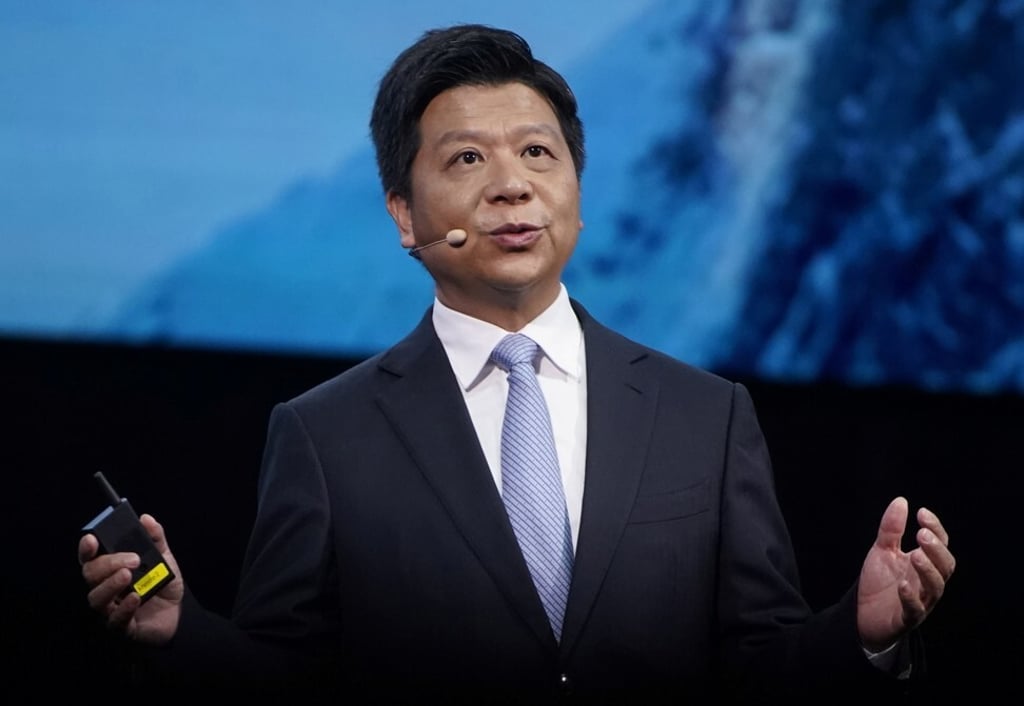Advertisement
Huawei vows to revive smartphone business, chip development despite struggles with US sanctions
- Huawei rotating chairman Guo Ping expects the company to regain its status as China’s leading Android smartphone vendor, as it works with supply chain partners
- He said the company will continue its efforts in semiconductor development, which have been hampered by tighter US trade restrictions
Reading Time:2 minutes
Why you can trust SCMP
4

Telecommunications giant Huawei Technologies Co plans to revive the fortunes of its struggling smartphone business, according to rotating chairman Guo Ping, as the company continues to work with its supply chain partners amid crippling US trade sanctions.
“Huawei will remain in the smartphone business,” said Guo in comments published on Tuesday on the firm’s Chinese social media accounts, including WeChat and Weibo. “We will eventually retake our throne in the smartphone market, while continuing to improve our chip-making capabilities.”
Guo, without elaborating, signalled Huawei’s ambition to expand its role in the semiconductor supply chain, with the help from its domestic and overseas partners.
Advertisement
Privately held Huawei, the world’s largest telecoms equipment maker and formerly China’s biggest smartphone vendor, was added to Washington’s trade blacklist in 2019. It has scrambled to adapt its operations to tighter restrictions imposed last year, covering access to chips developed or produced using US technology, from anywhere.
Guo, who shares Huawei’s rotating chairman title with Eric Xu Zhijun and Ken Hu Houkun, indicated that the Shenzhen-based company will require more investment and innovation to deal with the disruptions caused by the US trade sanctions, according to his address to new employees on Tuesday that was published on Xinsheng Shequ, the firm’s online community.
Advertisement

The comments made by Guo, who joined Huawei in 1988, provide a more upbeat message to the company’s workers and business partners around the world, following recent revelations that it was in survival mode.
Advertisement
Select Voice
Select Speed
1.00x